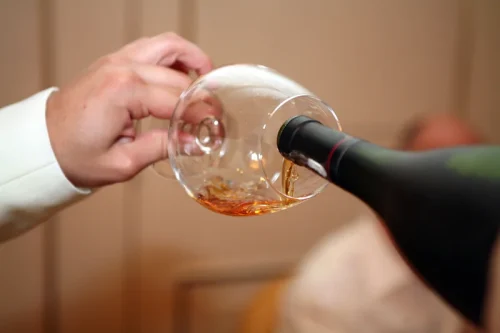
No matter your age, gender, your career status, your wealth, your mental health, your criminal record, developing alcohol addiction can happen to anyone. Of course, research suggests how alcoholism is likely to affect certain individuals more than others, down to genetics, environments and social factors. Twenty-four percent of Americans report binge drinking, which is five or more standard drinks for men (four or more for women) on one occasion. Although this may seem harmless, it can have dramatic health impacts even if done rarely. Many people believe that functioning well in daily life means their drinking isn’t problematic. However, the Surgeon General’s advisory highlights how alcohol-related harm can be cumulative and insidious, often going unnoticed until significant damage has occurred.
facts about Americans’ views of the World Health Organization
- The Centers for Disease Control and Prevention (CDC) say that getting drunk is the third-highest risk aspect that can be stopped yet still leads to death in the United States.
- Problem drinking is not about what you drink, but how it affects your life.
- A higher tolerance for alcohol does not mean the body is impervious to the effect of alcohol; it means that drinkers should be more cautious.
- By breaking alcoholism myths like this one, many more individuals will have access to high-quality treatment, while also feeling confident to reach out for this level of rehabilitation.
Following these changes, low alcohol consumption offered no advantage to those over 55 and grew heart disease danger by 44% for those under 55. Although moderate drinking may have positives for specific illnesses, its verified damage, especially in cancer, might exceed these advantages. Humans have a long, complicated relationship with alcohol. We often toast to special occasions, and that glass of red wine may even have health benefits. If you’re aware of the risks, you’re generally fine to drink alcohol in moderation.
Myth: You can drink and remain in control
High alcohol consumption implies tolerance and physical dependency and causes organ damage. One nontraditional form of treatment for alcohol use disorder is moderation management. This approach involves limiting alcohol consumption, specifically for people who aren’t physically dependent myths about alcoholism on alcohol. As you age, you may be more likely to take medication that could enhance the effects of alcohol. There also may be a higher likelihood for older people to have mental health conditions that may contribute to excess drinking.

Myth #3: The ability to “hold liquor” lowers the risk of alcoholism
- You do not need to drink every day to have a problem with alcohol.
- If you’ve ever heard the phrase that a couple of cocktails can “take the edge off” after a long week at work, you may believe the myth that alcohol can calm you down.
- For example, if you can answer “yes” to any two of the following statements, drinking may be causing you problems.
- The combination of traditional treatments with a holistic approach focuses on the mind, body and spirit.
- “So the actual cause (of any health benefit) probably wasn’t the alcohol at all,” Dr. Oesterle says.
A 2019 study of alcohol use in England found that people in professional managerial jobs had more occasions to drink than manual workers, casual workers, and unemployed people. Homeownership was also a strong predictor of alcohol consumption, Substance abuse according to the study. Research from 2017 also suggests that kids who were allowed to drink alcohol with adults were more likely to engage in risky drinking in their teens. Drinking tends to produce higher blood alcohol concentrations in women than men because of a difference in body weight and composition.
- Depending on how you metabolize alcohol, your BAC can reach this level after only one drink.
- There’s also a direct link between excessive drinking and the risk of committing sexual assault.
- If you or someone you know is struggling with alcoholism and needs guidance and support in their recovery journey, reach out for help.
- Alcohol, like a number of other substances, is deadly and brings the deaths of thousands of people each year.
Myth #1: I Do Not Have a Problem Because I Can Hold My Liquor

For over 20 years Dr. Umhau was a senior clinical investigator at the National Institute on Alcohol Abuse and Alcoholism of the National Institutes of Health (NIH). Coffee or a dunk in cold water might wake you up a little, but it won’t speed up the process of eliminating the bad stuff from your system. Diabetes was recently named “a defining disease of the 21st century” by the medical journal The Lancet.In the United States, … “It’s addictive for people … and then it’s causing problems.


You may think that mixing an energy drink with your cocktail will help combat alcohol’s drowsiness effects. One of the biggest misconceptions around alcohol is that it gives you energy, which may motivate you to drink more, especially during social situations. This kind of recruitment gives nearly all U.S. adults a chance of selection. Interviews were conducted either online or by telephone with a live interviewer. The survey is weighted to be representative of the U.S. adult population by gender, race, ethnicity, partisan affiliation, education and other categories.
Myth #5: An alcoholic must want to be helped for treatment to be effective
If you’re affected by alcoholism, please do not let these stereotypes control your need to speak out. Contrary to popular belief, not all alcoholics guzzle booze 24/7. Many alcoholics may have periods of sobriety or only drink on certain occasions. Coffee might make you feel more awake, but it won’t speed up the elimination of alcohol from your system. They may give you a temporary shock, but they won’t miraculously sober you up.
We can’t then get frustrated with those people because we built out a cultural norm around it,” he says. “So the actual cause (of any health benefit) probably wasn’t the alcohol at all,” Dr. Oesterle says. Free standard shipping is valid on orders of $45 or more (after promotions and discounts are applied, regular shipping rates do not qualify as part of the $45 or more) shipped to US addresses only.
88,000 people die annually as a result of drinking excessive alcohol. About 64,000 people were killed from issues related to drugs in 2016. But according to experts, it isn’t the order in which you consume your drinks that matters. However, the amount of alcohol you’ll need to drink to relieve chronic pain is likely more than the recommended guidelines for safe alcohol consumption.